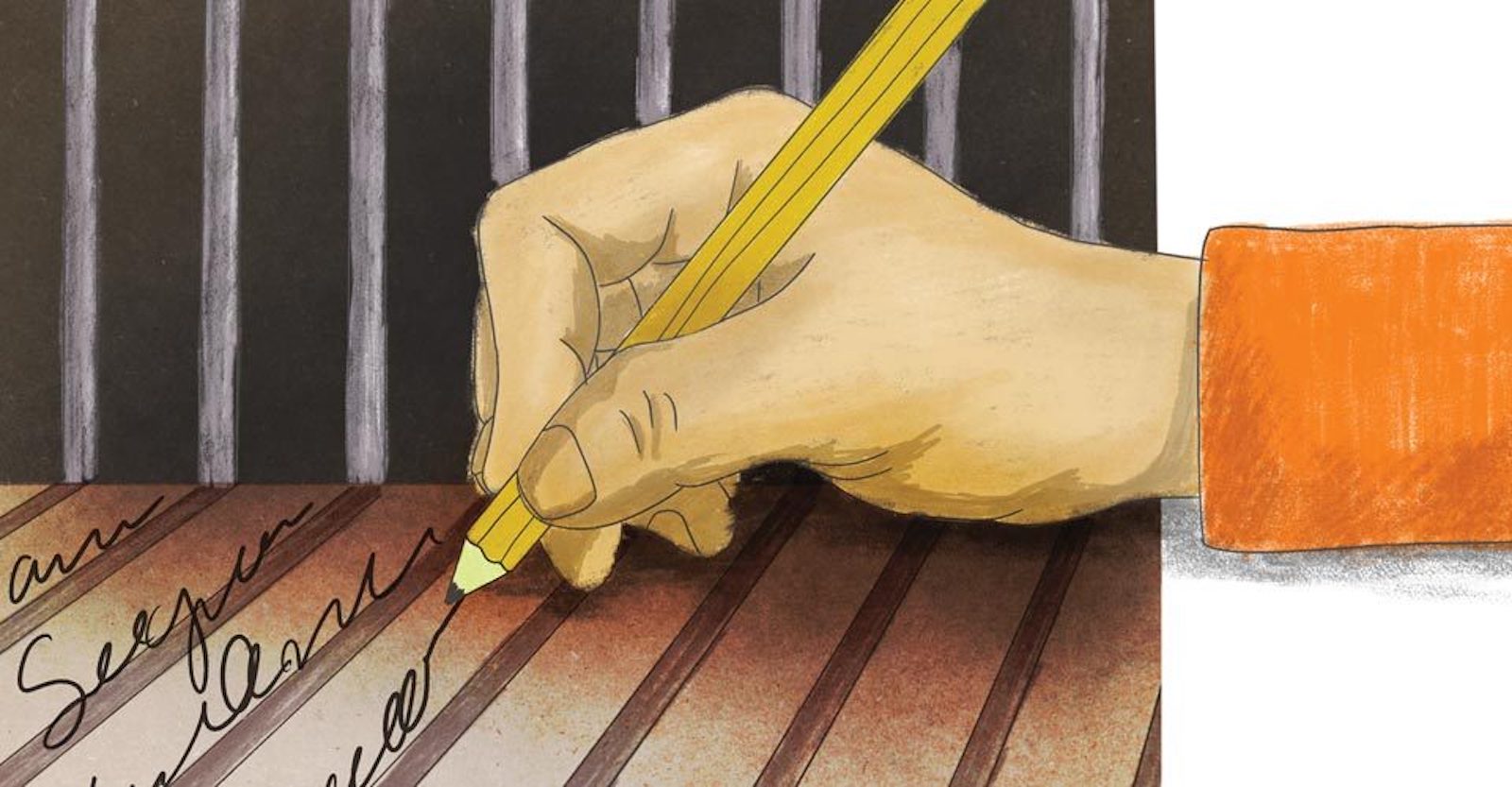‘Bridging’ an Academic Divide
September 15, 2022

Faculty and students bring writing course to D.C. corrections facilities.
By Sala Levin ’10 | Terp
Writing while imprisoned has a pedigreed history: Henry David Thoreau did it, along with Nelson Mandela, Mahatma Gandhi and Martin Luther King Jr. Now, thanks to the efforts of UMD faculty and students, those incarcerated by Washington, D.C.’s Department of Corrections are learning how to pen their own thoughts and stories from behind bars.
Associate Professor of English and Honors College Executive Director Peter Mallios and doctoral student Elizabeth Catchmark are working alongside UMD undergraduates to help students in jail learn the techniques and nuances of different forms of writing.
The work is part of a college bridge program developed and operated by the nonprofit Petey Greene Program to support current and formerly incarcerated learners who have a high school credential but seek to improve their writing or math skills in preparation for college.
“We teach writing as a civic act,” says Catchmark. “We argue that writing is a method of empowerment.”
Through the PGP’s virtual program, participants have access to a tablet at certain hours, during which they can watch the lectures from Mallios and Catchmark, get one-on-one support from undergraduate tutors and work on assignments. The goal is to prepare students for higher education and job opportunities while helping them unlock their own abilities.
The course is centered around understanding written arguments, crafting them and developing a philosophy of writing. Students read King’s “Letter from Birmingham Jail” and Audre Lorde’s “Poetry is Not a Luxury” as examples of effective writing and ultimately compose an essay exploring “what kind of writer they want to be, what their values are as a writer and how their experiences have shaped those values,” says Catchmark.
Next spring, she and Mallios plan to introduce a companion 15-week course to UMD students, starting with six weeks of learning about mass incarceration, prison education and tutoring techniques, followed by participation in the PGP’s tutoring program.
Mallios was drawn to the Petey Greene Program after having taught incarcerated students at Goucher College. Kayla Foster ’21 was president of UMD’s chapter of the PGP, inspired to join after reading “Just Mercy,” attorney Bryan Stevenson’s memoir of his work with disadvantaged clients. She estimates that she’s worked with some 10 to 15 students, helping them with GED preparation and math courses.
Read the full story in Terp Magazine.
Illustration by Valerie Morgan.

